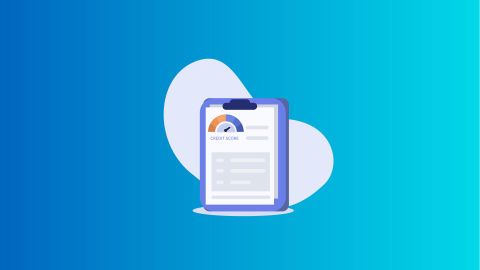A credit rating serves as an expert assessment by a credit rating agency concerning a borrower's creditworthiness. This assessment evaluates the borrower's capacity and commitment to fulfilling their financial obligations entirely and on time. In essence, a credit rating reflects the probability of default associated with the borrower and, by extension, the credit risk inherent to a particular debt instrument, such as a loan or bond issuance.
As an individual, your credit score is 300-900, and the higher your score is, the most trustworthy you are in the eyes of a lender. Most lenders in India take into account your CIBIL Score. However, there are other agencies, too, with scoring protocols that vary marginally.
Now that you have a basic understanding of a credit rating in India look at the details that affect you as a borrower.
Credit rating process
The credit rating process involves a detailed analysis of the credit risk associated with you. This is determined by evaluating factors such as your previous debt payments, credit exposure, and your credit utilisation ratio. An independent credit bureau generally carries this out and can be accessed in the form of a report that contains your credit history, as well as your score. This credit score can range anywhere 300-900; knowing what your score indicates is important. Here is the breakdown of the score brackets.
NA/ NH
This score is assigned to your profile when you have never borrowed credit and remains until you do.
300-549
This score indicates you have a poor credit history. This could mean you have minimal experience with handling credit or have defaulted on payments.
550-649
This is an average credit score and suggests that you need to work upon certain aspects that bring down your score.
650-749
This score is assigned to your profile when you have a healthy credit history. You have a fairly good chance of getting approval for credit with this score. However, as there is room for improvement, you may not enjoy other perks, such as being able to negotiate a lower interest rate.
685-900
This is the highest or good CIBIL Score and is assigned to your profile when your credit history is excellent. It indicates that you have ample experience with credit and have a sound repayment record. With a score in this range, you are likely to get approval for a loan and get a favourable loan amount and personal loan interest rate, as the risk associated with lending to you is negligible.
For instance, you can qualify for loans such as the Bajaj Finserv Personal Loan with a CIBIL Score of 650 or higher. It gives you access to a sanction of up to Rs. 55 lakh without collateral. This loan is repayable over a flexible tenure spanning up to 96 months, with instant approval and many benefits like the Flexi Personal Loan.
Additional Read: Personal loan with low CIBIL Score
Types of credit rating
There are many types of credit ratings, as these are assigned to bank loans, corporate debt instruments, mutual funds, and the insurance sector, among others.
When it comes to individual credit ratings, the following agencies typically assign a score.
- TransUnion CIBIL limited
- Equifax Credit Information Services Private limited
- Experian Credit Information Company of India
- CRIF High Mark
While your CIBIL Score is the one that financial institutions across India widely use, some lenders may request a score from other agencies. This does not need to alarm you, as there will not be a significant difference in the scores given by different credit agencies despite minor differences in scoring protocols.
Objectives of credit rating
Credit rating is important for a lender because it helps determine whether it is a fiscally sound decision to lend money to you. It simplifies this decision by condensing the relevant information into a single score. As a borrower, having a high score gives access to a higher loan amount and more flexibility in negotiating loan terms. Moreover, having a high score means that you do not have to settle and choose from several beneficial options.
Additional Read: Improve your credit rating.
For instance, when your score is 650 or higher or more, you can qualify for the Bajaj Finserv Personal Loan and make use of the Flexi Loan facility. You can borrow from the total loan amount that you have been given in parts when you need funds with this facility. The advantage here is that you pay interest only on the amount that you use. You also have the option of checking the loan through EMIs consisting of interest only for the duration of the tenure. You can pay the principal at the end of the term.
Once you are sure that your credit score being apt, you can also expedite your loan application. You can check your pre-approved offer for a customised loan deal and get a personal loan in no time at all.








